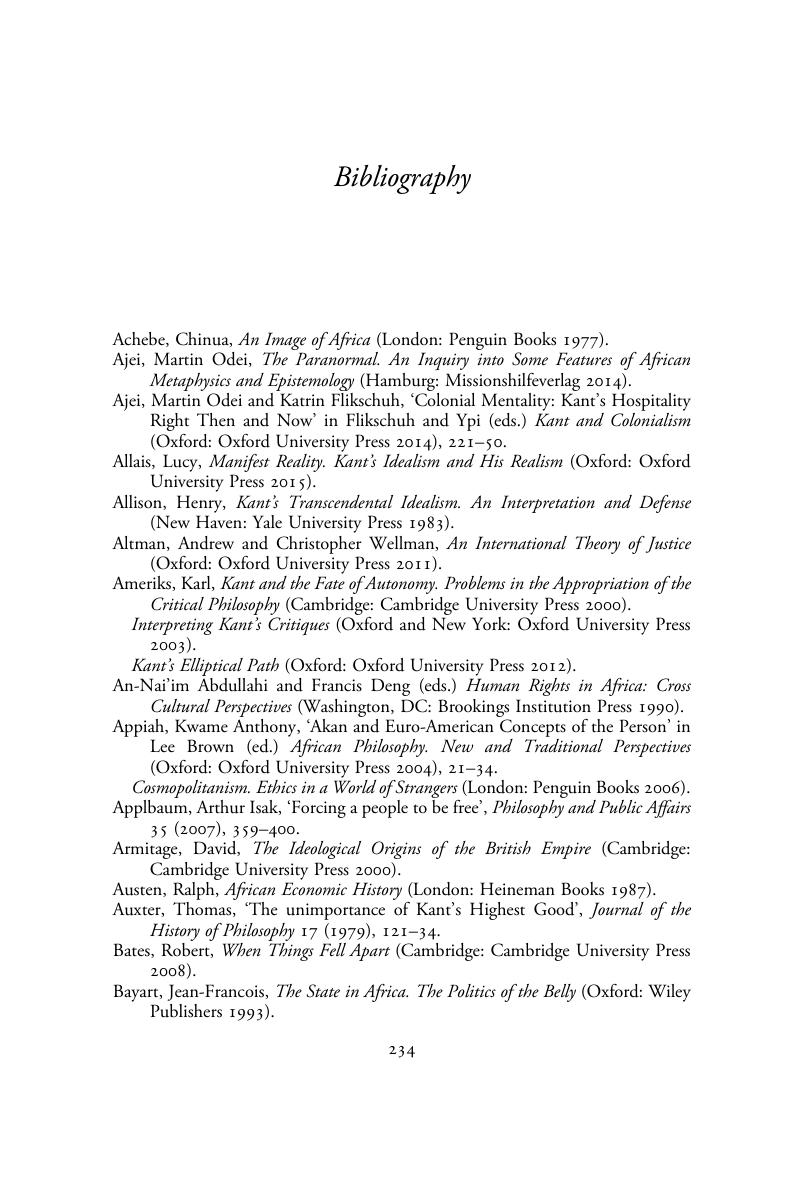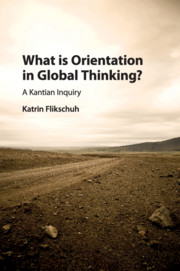Book contents
- What Is Orientation in Global Thinking?
- What Is Orientation in Global Thinking?
- Copyright page
- Dedication
- Contents
- Preface
- Abbreviations for Works by Kant
- Chapter 1 Conceptual Loss in Global Political Thinking
- Chapter 2 On the Moral Necessity of States
- Chapter 3 Non-Individualist ‘Innate Right’
- Chapter 4 Reorienting Global Normative Thinking
- Chapter 5 Progress without History
- Chapter 6 Human Rights for Ancestors?
- Chapter 7 The State as a Failed Universal
- Conclusion: Theory as Practice
- Bibliography
- Index
- References
Bibliography
Published online by Cambridge University Press: 19 October 2017
- What Is Orientation in Global Thinking?
- What Is Orientation in Global Thinking?
- Copyright page
- Dedication
- Contents
- Preface
- Abbreviations for Works by Kant
- Chapter 1 Conceptual Loss in Global Political Thinking
- Chapter 2 On the Moral Necessity of States
- Chapter 3 Non-Individualist ‘Innate Right’
- Chapter 4 Reorienting Global Normative Thinking
- Chapter 5 Progress without History
- Chapter 6 Human Rights for Ancestors?
- Chapter 7 The State as a Failed Universal
- Conclusion: Theory as Practice
- Bibliography
- Index
- References
Summary

Information
- Type
- Chapter
- Information
- What is Orientation in Global Thinking?A Kantian Inquiry, pp. 226 - 233Publisher: Cambridge University PressPrint publication year: 2017
